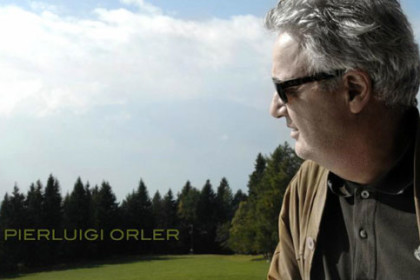
In 1108, my city, but also yours, it was made of wooden houses. Pigs foraged in the streets, and wolves howled at the foot of the walls of mud. In my town, not in yours, there was the most prestigious Bishop’s School in Europe. For example, I could tell the story of a student at Reims, who, wanting to drink from our fount of wisdom, left his native town and walked beneath the blazing sun, driving rain and wind for months. To pay for his travel and lodging, he led a caravan of cloth from Flanders ready to take away the precious wool from the fleece of Padanian sheep away in return. But, basically, it’s a story that’s too polluted by money, a banal one with no sense of the olden days. Why talk about it?
Perhaps I should talk about Bertrando, my fellow townsman, who after joining the first Crusade and living for a few years in Jerusalem, returned home in 1108, telling everyone how they had huge lions in front of the churches, in the Orient. He insisted on putting the same lions here, even though the lions in our churches are more beautiful.
But no, I prefer the story of Gherardino Segalello, an uneducated peasant who wanted to become a monk. Rejected by the Church, he cut his cloak into the shape of those worn by the Apostles in the medieval pictures, and wandered the countryside preaching on his own account. He used to enter people’s houses shouting “penitenziàgite, penitezniàgite”. He began gathering followers and, as he advocated the pleasures of the flesh, the only way of achieving purity, the number of his Apostles began to grow very quickly. This was followed by intense moments of prayer and colossal orgies. All this happened years and years after 1108, and until – unfortunately – Segalello was burned in the village square. In the square of my home town. And since I don’t like to talk about things off topic that don’t put my town in a good light, we will stay with 1108. In that year, in our region, there were a few noblemen who had studied at the Bishop’s School. One of them, Sinibaldo, was summoned by the emperor to the Imperial secretary. He would have become a great Chancellor. But he had a father, Uberto, who wanted him to be mayor of a nearby town. He wanted him to be on the side of the free cities, not of the Empire. Sinibaldo, still undecided between Lombardy and Germany, was racked by dysentery. And died in 1108. But why tell a banal tale of stomach ache and intestine cramps? There is a better one, the story of little Ugo, the son of Bernard, the merchant. He went with his father to the fair of San Siro, held every year at the place where is the river running through my town opens into the Po. And there he would run, among the jars of oil from Liguria, piles of salt from Romagna, the spices brought from Pisa and Genoa, and the Venetian damasks. He would sniff the acrid smell of donkeys, mules, oxen and horses, watching the boats sliding across the water, and listen to foreigners speaking unknown languages. He would wash his feet in the river. But who is interested in that story?
To be continued…
 English
English  Italiano
Italiano 


